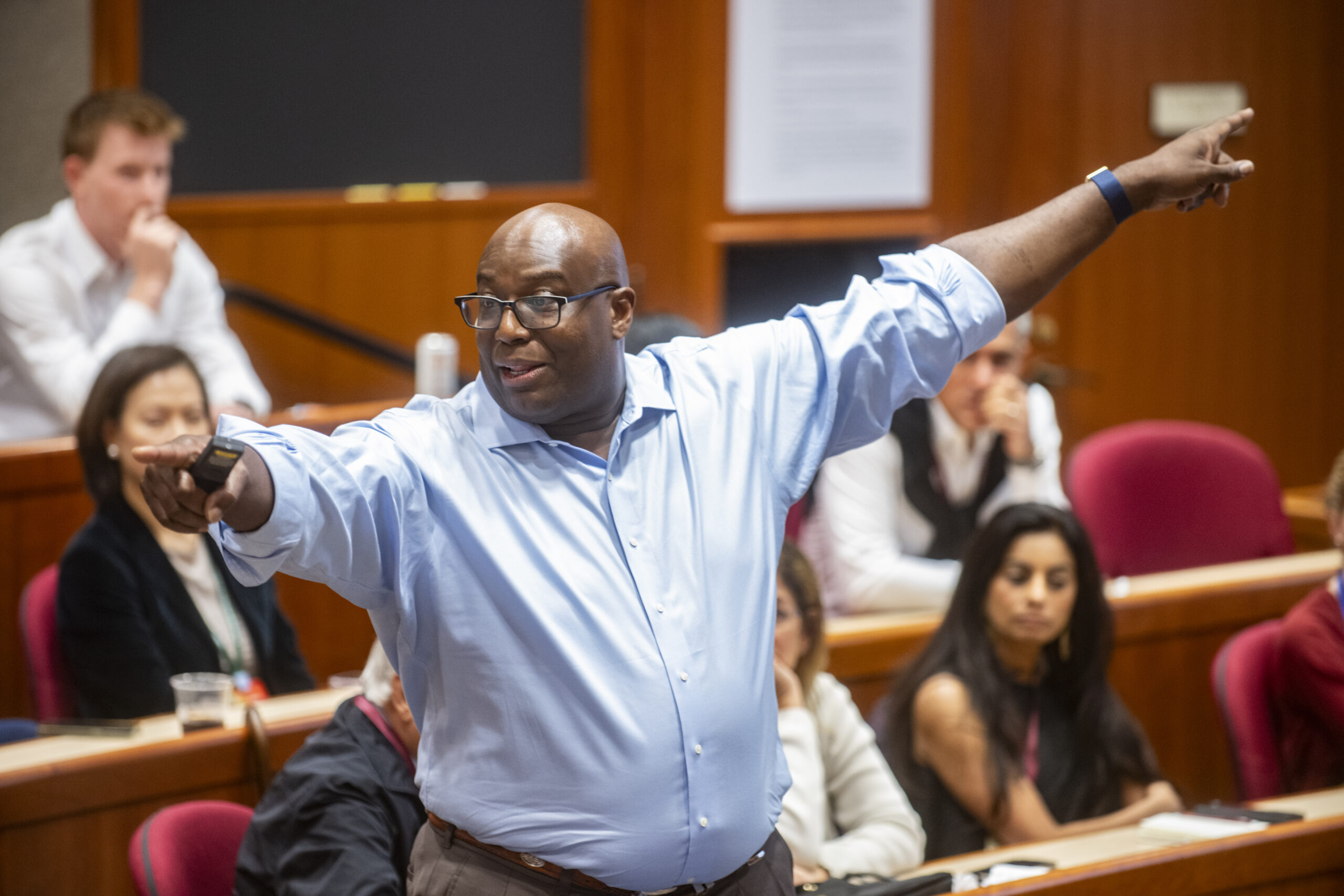

Editor’s Note: The below post is part of our new Alumni for Impact series, which features alumni who are making a difference in the social sector, specifically in K-12 education, impact investing, nonprofit supportive services and social entrepreneurship. Read below to learn about how Elizabeth Scharpf (MBA 2007), social entrepreneur, founded Sustainable Health Enterprises.
About 10 years ago, I was a bright-eyed HBS intern at the World Bank in Mozambique. I went there thinking I would continue to work with small and medium businesses globally, making them more efficient given my background prior to graduate school. Instead, I came home wanting to design a maxi pad out of a banana tree for half the world! How did that happen?
While in Mozambique I discovered that millions of girls and women around the world miss school and work when they are menstruating because they lack access to affordable maxi pads. Most of the efforts to respond to this problem, as well as most problems in resource-poor settings is charity. But charitable efforts alone are not enough to address the breadth and complexity of socio-economic and health problems that exist in developing and developed markets.
Back in 2007, I realized that coming up with breakthroughs wasn’t always something you planned to do, but rather had to do given the environment and circumstances. That's what my organization, Sustainable Health Enterprises (SHE), has learned in Rwanda. Our first initiative, SHE28, aims to make affordable maxi pads, since the existing ones cost girls a day’s worth of wages causing girls and women to miss school and work. We process banana fiber into absorbent fluff to replace the most expensive part of the pads. To further decrease costs, we use little water and electricity. Our product is environmentally sustainable and a fraction of the price of multinational company products. Local Rwandan women manufacture and market these pads and gradually become owners of the business through microfinance loans.
I wouldn’t say I’m passionate about periods, but rather I am passionate about addressing a huge problem that was, at that time, largely ignored. It represents one of the many issues that are taboo and underinvested because of the “ick” factor. This is not only the case for non-profit sector but also the for-profit sector as well. As a result, there are a lot of big untapped markets and innovation breakthroughs to be had. At the same time, the opportunity to have positive economic, educational, and health outcomes is significant.
While innovation is sometimes recognized in places far from Silicon Valley, it’s usually later rather than sooner. We were met with resistance from many different fronts on the investor side and the multi-national side. In some cases, I was able to raise capital and convince partners to join in our efforts thanks in large part to the Harvard degrees on my resume. But what happens when that is not the case? People and ideas are left on the table. There are many missed opportunities.
I’m planning on using our flagship initiative as the foundation to build many other products and services that address an overlooked (likely taboo) topic. There isn’t enough time to continue to do business, develop products and services, and reach customers the way we have been doing.